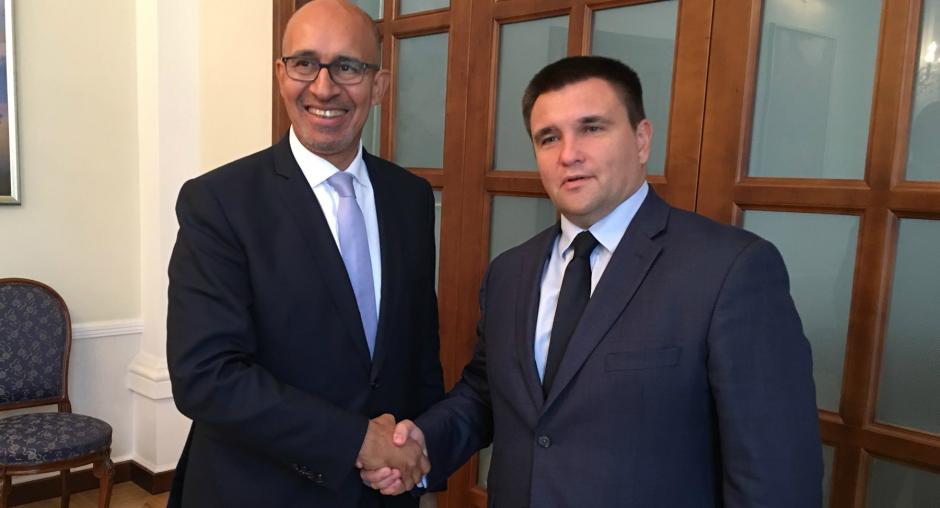Impunity for crimes against journalists must end, media workers should be free from fear of violence, says OSCE media freedom representative during visit in Ukraine

KYIV, 20 October 2017 – The safety of journalists and putting an end to impunity for crimes committed against them must be adequately addressed to maintain a favourable environment for freedom of the media in Ukraine, OSCE Representative on Freedom of the Media Harlem Désir said today, during his visit to Kyiv.
The Representative met with Foreign Minister Pavlo Klimkin and other senior governmental officials, including First Deputy Minister of Information Policy Emine Dzhaparova and Deputy Interior Minister Tatyana Kovalchuk. He also met with representatives of a number of civil society and media organizations to discuss media freedom issues in Ukraine and areas where his Office can provide assistance.
“The safety of media workers remains fragile in Ukraine and I urge the authorities to put an end to impunity for all attacks on journalists, by effectively and promptly completing investigations and prosecuting instances of unwarranted interference,” Désir said. “Journalists should work in an enabling environment free from fear of violence and intimidation.”
Désir stressed that the cases of Ukrainian journalists Roman Sushchenko, arrested in Moscow, Nikolay Semena, recently convicted in Crimea, Stanislav Aseev, detained in Donetsk, and developments around the Strana.ua news portal and its journalists remain in the focus of his attention. In the course of the visit, the Representative also met with Roman Sushchenko’s wife, Angela Sushchenko, and ensured his support in efforts aimed at the journalist’s release.
In addition, he raised concerns regarding the journalists Narzullo Akhunjonov and Fikret Huseynli, recently detained in Ukraine upon extradition requests by Uzbekistan and Azerbaijan, respectively. The Representative asked the authorities not to extradite the two journalists as they might face unfair treatment and persecution for their critical reporting.
In his discussions with authorities, Désir further discussed the need to respect the work of foreign reporters and other media actors by balancing security concerns with respect of freedom of expression and freedom of the media.
“Even in difficult times any restrictions or limitations with regard to the work of journalists or media must be strictly coherent and compliant with the principles of transparency, rule of law and due process,” Désir said. “Views and opinions, including on issues that could be considered as controversial, sensitive, shocking or offensive should be allowed to be freely expressed. Potentially problematic content should be narrowly defined and carefully addressed by courts, while media associations and self-regulatory bodies should engage in assessment from the ethical side.”
Désir underlined the importance of maintaining a well-functioning public service broadcaster in Ukraine. He noted concerns that despite the fact that funding of the public service broadcaster is guaranteed by law, the broadcaster is facing possible underfunding in 2018. He called on the authorities to find an effective funding solution that would allow the broadcaster to fulfill its important role.
The Representative reiterated the readiness of his Office to continue the established dialogue with Ukraine and to support relevant processes for maintaining a diverse and pluralistic media landscape in the country in line with OSCE media freedom commitments and best international practices.
He also offered assistance in providing expert analysis and policy recommendations on legislative initiatives affecting freedom of expression and media freedom, similar to the review regarding the draft law “On Changes to Some Legislative Acts of Ukraine on Countering Threats to National Security in the Information Sphere”, which his Office commissioned and recently presented to the authorities (see https://www.osce.org/fom/350791).
The OSCE Representative on Freedom of the Media observes media developments in all 57 OSCE participating States. He provides early warning on violations of freedom of expression and media freedom and promotes full compliance with OSCE media freedom commitments. Learn more at www.osce.org/fom, Twitter: @OSCE_RFoM and on www.facebook.com/osce.rfom.
